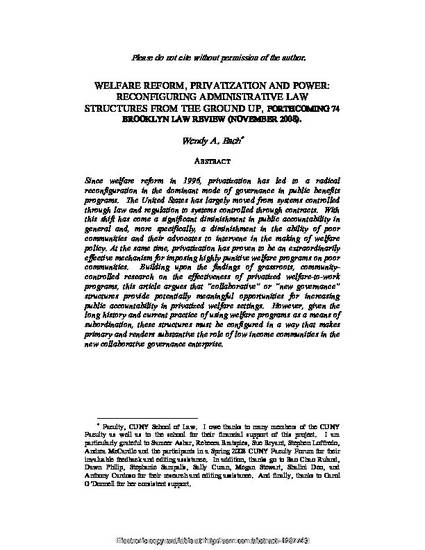
Since welfare reform in 1996, privatization has led to a radical reconfiguration in the dominant mode of governance in public benefits programs. The United States has largely moved from systems controlled through law and regulation to systems controlled through contracts. With this shift has come a significant diminishment in public accountability in general and, more specifically, a diminishment in the ability of poor communities and their advocates to intervene in the making of welfare policy. At the same time, privatization has proven to be an extraordinarily effective mechanism for imposing highly punitive welfare programs on poor communities. Building upon the findings of grassroots, community-controlled research on the effectiveness of privatized welfare-to-work programs, this article argues that "collaborative" or "new governance" structures provide potentially meaningful opportunities for increasing public accountability in privatized welfare settings. However, given the long history and current practice of using welfare programs as a means of subordination, these structures must be configured in a way that makes primary and renders substantive the role of low income communities in the new collaborative governance enterprise.
Available at: http://works.bepress.com/wendy-bach/15/
